|
Fiat Group closed its second quarter
of 2007 with revenues of 15.2 billion, up nearly 12% on the prior year, the
highest level in its history (same perimeter basis). Group trading profit rose
44% to 946 million, the highest level ever reached by the Group, with all
sectors posting positive results and improving over 2006. Net income of 627
million is 297 million or 90% ahead of the prior year. Net debt dropped below
the 1 billion mark at 873 million (a 404 million decrease in the quarter),
notwithstanding more than 500 million in dividend distributions and share
buybacks. 2007 guidance is confirmed at the upper end of the range, with
year-end debt levels now expected to be approximately 600 million.
The Board of Directors of Fiat S.p.A.
met today in Turin under the chairmanship of Luca Cordero di Montezemolo to
approve the consolidated results of the Group for the second quarter and first
half of 2007.
Group revenues rose 11.5% to 15.2
billion driven by
Trucks (+25.2% at 2.9 billion), Agricultural and
Construction Equipment (+16.3% in US dollar terms,
8.5% reported) and Fiat Group Automobiles (+12.1%
at 6.8 billion): Fiat Group Automobiles grew sales 12.2% to
578,700 units, gaining share and reaching the
highest level since 2nd quarter 2001; Iveco benefited from strong performance in
Western Europe and from buoyant conditions in
Eastern Europe and Latin America and sold the
highest level of vehicles in its history; CNH revenues rose 16.3% in US dollar terms
(8.5% reported) on improved Agricultural
Equipment sales, driven by better mix and market
share gains, more than offsetting weakness in
the US construction equipment market. The
sector retailed the highest number of tractors and
combines in any quarter in its history.
Trading profit rose to 946 million (+44%) with all
Sectors showing gains: Fiat Group Automobiles more than doubled to
193 million (2.8% of revenues), driven by volumes and cost efficiencies; Iveco posted a 37.4% increase to 224 million,
with margins moving to 7.8% from 7.1% thanks to higher volume and prices; CNH trading profit grew to 348 million (10.6% of
sales) up 36.8% in US dollar terms, driven by higher
volume and better mix, except for North American
construction equipment which traded in weak
markets. The business achieved double-digit
operating margins for the first time since the 1999 merger of Case and New
Holland; Components & Production systems drove trading
profit up 39% to 146 million on higher volumes
and cost efficiencies.
Net industrial debt was reduced by 404 million from
Q1 levels to 873 million. Fiats debt rating has been
moved to investment grade by one rating agency. Three new industrial alliances announced in the
quarter for Iveco, FPT Powertrain Technologies
and Magneti Marelli.
Group results in the second quarter
Fiat Group had revenues of 15.2 billion in Q2 2007, up 11.5% from the same
period in
2006, driven by growth across all major industrial businesses.
With revenues of 7.4 billion, the Automobiles businesses posted a 12.3% growth
over
Q2 2006. All sectors contributed to this positive performance: Fiat Group
Automobiles
had revenues of 6.8 billion, up 12.1% from Q2 2006 on higher volumes. Revenues
increased 8.7% at Ferrari and 19.6% at Maserati.
Agricultural and Construction Equipment businesses (CNH) had revenues of 3.3
billion
(+8.5% from Q2 2006). In US dollar terms, revenues rose by 16.3%, due in
particular to
an increase in volume of combines and higher horsepower agricultural tractors.
Iveco had revenues of 2.9 billion, a 25.2% growth compared to the same period
of 2006.
The increase was due to higher sales volumes and improved pricing.
Revenues in the Components and Production Systems businesses totalled 3.5
billion, a
7.2% increase over Q2 2006. Sales increased 15.8% at FPT Powertrain Technologies
and 11.2% at Magneti Marelli, while they were down 31.2% at Teksid mainly due to
disposals (Meridian Technologies in 1st quarter 2007) and 11.3% at Comau, due to
the
overall weakness in its trading environment.
In Q2 2007 the Groups trading profit
totalled 946 million, up 287 million or
43.6% from
Q2 2006. Trading margin rose from 4.8% to 6.2%. The contribution of the
Automobiles
businesses was key in achieving this improvement: in particular, trading profit
at Fiat
Group Automobiles rose 105 million to 193 million, resulting in a trading
margin of
2.8% versus 1.5% in Q2 2006. Agricultural and Construction Equipment (CNH)
trading
profit also increased significantly to 348 million (up 75 million or 27.5% in
reported
terms and up 36.8% in US dollar terms), equal to 10.6% of revenues (9.1% in
2006).
Ivecos trading profit totalled 224 million, an increase of 61 million
(+37.4%), yielding a
margin of 7.8% (7.1% in 2006). Positive performances were also recorded by the
Components and Production Systems businesses, with an aggregate increase of 41
million due to improved results at FPT Powertrain Technologies, Magneti Marelli
and
Comau, which began to benefit from the restructuring process started in 2006.
The
decrease at Teksid was attributable to the change in the scope of consolidation.
Net financial expenses which amounted to 111 million (163 million in 2006)
include
gains of 69 million arising from two stock-options related equity swaps and
costs of 43
million related to the accelerated redemption (in August 2007) of CNH senior
notes due in
2011. The remaining decrease of 26 million reflects mainly lower industrial
debt levels.
Income taxes amounted to 248 million ( 36 million higher than 2006), with the
Group
tax rate dropping to 28.3%, in line with the Groups expectations for the whole
year.
Net income before minority interest was 627 million, 90% higher than the 330
million
posted in Q2 2006.
The Group generated net industrial cash flow (change in net industrial debt,
excluding
capital increases, dividends, and the impact of foreign currency translation) of
approximately 0.9 billion in Q2 2007 thanks to positive operating performance
despite
capital expenditures of 749 million (149 million higher than in Q2 2006). This
cash flow
was used to fund 274 million dividends to Group shareholders, 34 million to
minority
shareholders of consolidated entities (principally Ferrari and CNH) and share
repurchases of 231 million. At the end of the period, net debt stood at 873
million.
The Groups cash position at June 30, 2007 was 7.4 billion, 0.2 billion lower
than the
7.6 billion at the end of March.
Group results in the first six months
In H1 2007, the Fiat Group had revenues of 28.9 billion, up 10.3% from H1 2006,
with
all industrial businesses contributing to this improvement. Iveco posted the
biggest
improvement, with revenues up 22.7%, while sales from the Automobiles businesses
increased by 11.7%. Increases in revenues were also reported by CNH, +13.7% in
US
dollar terms (+5.2% reported) and in the Components and Production Systems
businesses (+4.3%).
The Group had a trading profit of more than 1.5 billion, nearly 57% higher than
in H1
2006, with a trading margin of 5.3% versus 3.8% in H1 2006. The improvement is
attributable to the Automobiles businesses and Fiat Group Automobiles in
particular, whose
trading profit grew by 240 million to 385 million, with a trading margin of
2.9% (1.2% in
H1 2006). Ivecos contribution was also significant, with trading profit of 374
million
(+60.5%) and a trading margin of 7.0% (5.3% in 2006). CNHs trading profit grew
by 31% to
537 million, delivering a trading margin of 9.0% (7.2% in H1 2006). The trading
profit of
the Components and Production Systems businesses increased in total by 42
million due
to higher trading profit at FPT Powertrain Technologies, Magneti Marelli and
Teksid.
In H1 2007 the Group achieved operating income of 1,541 million. The 559
million
increase from H1 2006 (982 million) reflects improved trading profit, with
unusual
items netting out to nil.
In H1 2007 net financial expenses
totalled 168 million, versus 298 million in
H1
2006. The 130 million improvement mainly reflects lower net industrial debt of
the
Group as well as an increase in financial income of 128 million on two
stock-options
related equity swaps, partly offset by the 43 million cost related to the early
redemption of CNH senior notes otherwise due in 2011.
Income before taxes totalled 1,449 million, compared with 774 million in H1
2006.
The 675 million improvement is due to the increase of 559 million in operating
income, as well as to lower net financial expenses for 130 million, while
investment
income decreased by 14 million.
In H1 2007, net income before minority interest was 1,003 million, compared
with
481 million in the same period of 2006.
Net industrial debt decreased from 1.8 billion at 2006 year end to 0.9 billion
at June
30, 2007, mainly reflecting positive net industrial cash flow of approximately
1.4 billion
net of dividends paid and share buy-back of more than 0.5 billion.
Automobiles
The Automobiles businesses posted
revenues of 7.4 billion in Q2 2007, up 12.3%
from the same period of 2006, due to the sharp
increase in sales volumes. In particular, Fiat
Group Automobiles had revenues of 6.8
billion, up 12.1% from Q2 2006.
Fiat Group Automobiles delivered a total of
578,700 units worldwide, up 12.2% from Q2
2006. Approximately 360,600 units were
delivered in Western Europe, an increase of
3.8%. Due to the success of Punto, Panda,
Bravo and light commercial vehicles (Ducato
and Scudo), deliveries remained at high levels
in nearly all countries: Spain +26.8%, France
and Great Britain +7.8%, Italy +3.0%. Germany
was the only exception (-9.5%). With respect
to Q2 2006, volumes increased by 35.6% in
Brazil and by 37.1% in Poland.
In Q2 2007, the Western European automobile
market contracted 1.4% from Q2 2006. This
performance was impacted by the sharp
contraction in demand in Germany (-8.4%),
France (-3.7%) and Spain (-2.4%), while the
market grew in Italy (+8.7%) and Great Britain
(+1.1%). Demand rose 25.6% in Poland and
33.6% in Brazil.
Fiat Group Automobiles continued to gain
market share, reaching 31.5% in Italy (+0.9
percentage point) and 8.2% in Western Europe
(+0.6 percentage point). In key markets outside
of Europe, penetration improved in Brazil
(share of 25.9%, +0.9 percentage point) and
decreased slightly in Poland (share of 10.4%,
-0.6 percentage point).
A total of 102,000 light commercial vehicles were delivered to the dealer
network in Q2 2007,
an increase of 16.3% from Q2 2006. The increase in volume recorded in Western
Europe
(+10.3%, 66,000 deliveries) was nearly double the increase in demand (+5.6%).
The Groups
LCV market share stood at 12.8% (+0.3 percentage point) in Western Europe. In
Italy market
share was 4.7 percentage points lower, at 43.0%, since in 2006 it had benefited
from
significant fleet contracts which come up for renewal every four years.
Fiat Group Automobiles had a trading profit of 193 million, more than double
the Q2
2006 level. The increase is mainly attributable to higher volume, a more
favourable product
mix following the introduction of new models, increased absorption of fixed
production
costs, net of higher marketing costs for the launch of new models and increased
spending
in network development costs.
In Q2 2007 the Fiat brand presented the Linea, a three-volume sedan produced in
Turkey and
sold in non-European countries as well as selected European markets. A new LCV-derived
passenger transport vehicle, the Scudo Panorama, made its debut at the same time
that the
Fiat Professional logo was introduced for the Light Commercial Vehicles brand of
the Group.
In mid-June the Fiat brand introduced a new version of the Grande Punto equipped
with the
innovative 1.4 T-jet 120 hp gasoline engine, which produces approximately 10%
less CO2
emission than comparable engines in its range. Shortly after the close of the
quarter, the
Group launched its iconic Fiat 500, a model that represents the starting point
for the Fiat of
the future. Most of the 2007 planned production is sold out after its
introduction in the Italian
and French markets, and the Group is examining ways to boost production in the
short term.
First half
In H1 2007, the Automobiles businesses had revenues of 14.2 billion, an
increase of
11.7% from H1 2006. Fiat Group Automobiles posted revenues of 13.1 billion, up
11.2%,
due to a sharp increase in volumes resulting from the success of new models and
outstanding performance of Brazilian operations.
During the period, Fiat Group Automobiles delivered a total of 1,119,850 units
(+11.9%),
approximately 716,200 of which in Western Europe, where volumes increased by
5.2% as a
result of the good performance of all models. Punto continues to be one of the
best-selling
models in Europe, Panda retained its leadership position in the A segment and
Bravo
received 55,000 orders since launch to June 30th. Lancia scored the best sales
result since
2001 and launched the Ypsilon Sport MomoDesign. Increases were recorded across
all
European countries: Spain +23.3%, France +10.3%, Great Britain +8.0%; Italy
+5.6%. The
only exception was Germany, with the Group down 6.9% in a market that contracted
9.1%.
Strong increases in deliveries were also recorded in Brazil (+30.6%) and Poland
(+19.1%).
These results are all the more significant since they were achieved in a Western
European market that contracted by 1.1% in H1 2007. An overall decrease in
demand
was posted across all major markets, with Italy (+6.5%) and Great Britain (+2%)
being the
sole exceptions. Demand rose in Poland (+26%) and Brazil (+25.7%).
Fiat Group Automobiles achieved a 31.7% market share in Italy versus 30.6% in H1
2006. This positive trend was also confirmed in Western Europe, where an 8.4%
market
share (+0.6 percentage points) allowed Fiat Group Automobiles to reach the fifth
position
in the ranking of manufacturers operating in Europe. In Brazil, Fiats market
share
increased one percentage point to 25.4%, and thus confirmed the Group as market
leader, while it was slightly lower (-0.3 percentage points) at 10.4% in Poland.
A total of 196,200 light commercial vehicles were delivered in H1 2007, up 21.8%
from
H1 2006. In Western Europe, where demand rose by 5%, deliveries increased 15.3%
to
125,400 units. Fiat Professional (LCV) market share stood at 42.5% (-2.7
percentage
points) in Italy and remained substantially unchanged at 11.7% (+0.4 percentage
points)
in Western Europe.
Fiat Group Automobiles had a trading profit of 385 million, 240 million higher
than in
H1 2006, driven in the main by higher volumes and cost efficiencies.
Maserati had revenues of 177 million in Q2 2007, up 19.6% from the same period
of
2006. The improvement is largely attributable to the outstanding performance of
the new
automatic version of Quattroporte, which is selling well in all markets. In
total, Maserati
delivered 1,863 units during the period, up 9% from Q2 2006.
In Q2 2007 Maserati posted a positive trading result (1 million), for the first
time since
its acquisition by Fiat Group in 1993. The turnaround in performance (trading
loss of 7
million in Q2 2006) is attributable to higher volumes and the significant
cost-containment
actions which have been implemented over the last 12 months.
In H1 Maserati had revenues of 344 million, up 27.9% from H1 2006. Deliveries
to the
sales network (3,704 units) rose by 22%. The Quattroporte model grew
significantly,
posting a 65% increase in deliveries within the context of a luxury sedan market
that
contracted by 17%. At the end of H1, the order backlog amounted to 1,979 units,
of which
1,442 are Granturismo, whose in-market launch is scheduled to begin in July.
In H1 Maserati achieved break-even, a sharp improvement from H1 2006 when it
posted
a trading loss of 26 million.
Ferrari had revenues of 423 million in Q2 2007. The 8.7% increase from the same
period of 2006 is attributable to sales of the Coupι, Spider and Challenge
versions of the
F430 model, as well as to the success of the 599 GTB Fiorano model. In the
period,
1,740 cars were delivered to end customers (+9%) and 1,651 to the sales network
(+11.3%).
Ferrari closed Q2 2007 with a trading profit of 70 million, up 32% from Q2
2006. This
positive performance is mainly attributable to higher sales volumes and cost
efficiencies.
In H1 2007, Ferrari had revenues of 804 million, an increase of 13.9% from the
same
period of 2006. In the period, sales to customers totalled 3,364 units (+14%)
and
deliveries to dealers 3,247 units (+18%).
Ferrari had a trading profit of 101 million in H1 2007, up 57.8% from H1 2006.
|
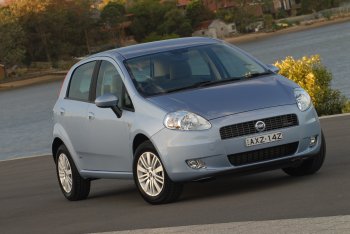
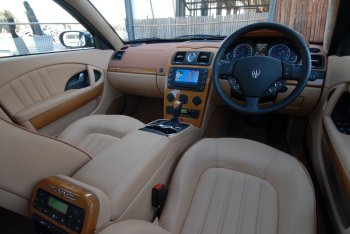
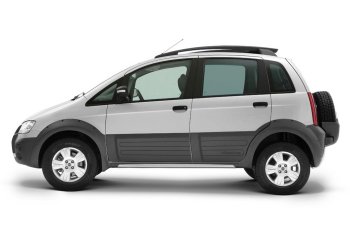
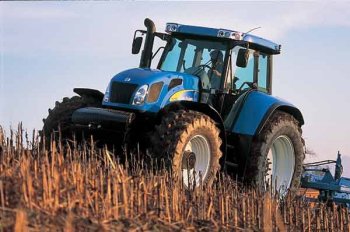
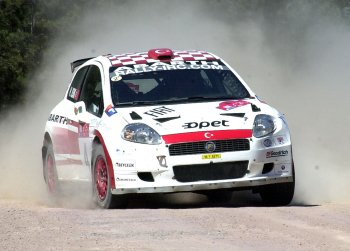
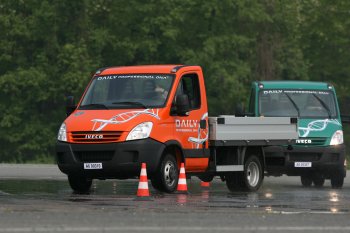
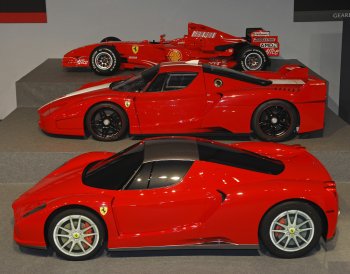
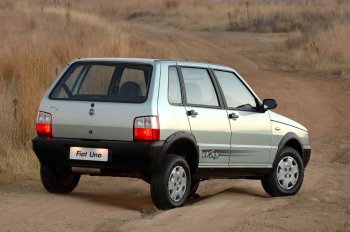 |
|
Fiat Group closed its
second quarter
of 2007 with revenues of 15.2 billion, up nearly
12% on the prior year, the highest level in its
history (same perimeter basis). Group trading profit
rose 44% to 946 million, the highest level ever
reached by the Group, with all sectors posting
positive results and improving over 2006. |
|
|
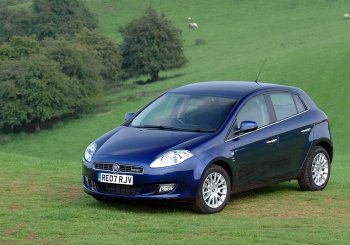
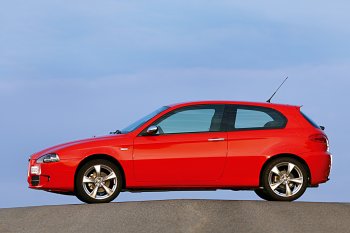
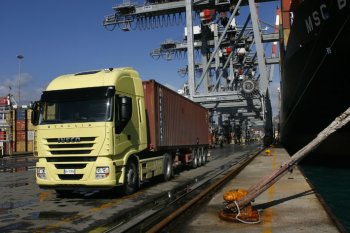
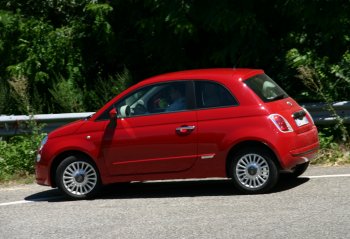
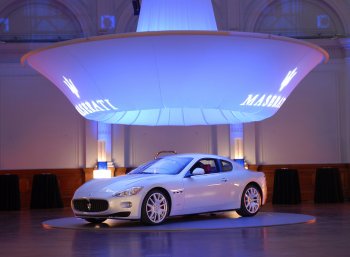
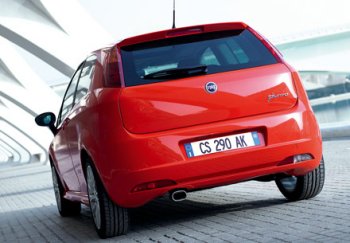
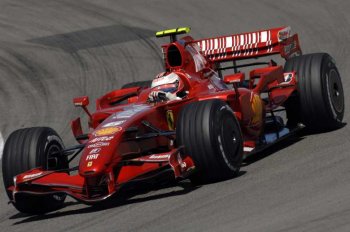
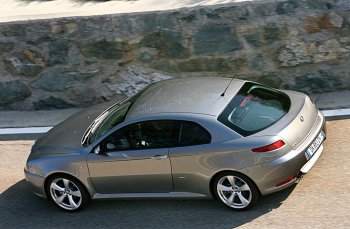 |
|
The Board of Directors of Fiat S.p.A.
met today in Turin under the chairmanship of Luca Cordero di Montezemolo to
approve the consolidated results of the Group for the second quarter and first
half of 2007. |
|
|
Agricultural and Construction
Equipment
Second quarter
CNH Case New Holland revenues in Q2
2007 amounted to 3.3 billion. In U.S. dollar
terms, revenues increased by 16.3%, but
the weakness of the US dollar reduced the
year-over-year improvement to 8.5% in euro
terms. The improvement is due to an
increase in sales of higher horsepower
tractors and combines, and an increase in
sales in construction equipment outside of
North America. All of the brands achieved
year-over-year market share gains.
The global market for agricultural equipment increased by approximately 4% over
the
second quarter of 2006. Demand rose by 1% in North America due to higher sales
of
both tractors and combine harvesters. In Latin America, the market increased
significantly, in both combine harvesters and tractors. In Western Europe, the
market
decreased for tractors while it was up for combine harvesters. In the Rest of
the World,
the market was up, especially demand for combine harvesters.
CNH unit deliveries of tractors to its dealer network, in the second quarter of
2007
increased by 13% with volumes in the 40+ horsepower range (which represent the
core
of CNHs agricultural activities) up 17%. Deliveries of combine harvesters to
the network
increased by 37% reflecting good performance in all regions.
The global construction equipment market grew by 10% with respect to the second
quarter of 2006. Demand for both heavy and light equipment grew significantly in
all the
main geographic regions except North America, where it declined by 14%.
CNH construction equipment deliveries to the network were essentially flat over
the
second quarter of 2006, reflecting higher volume in virtually all markets and a
decline,
consistent with overall market performance, in North America.
CNH closed the second quarter of 2007 with a trading profit of 348 million, an
increase
of 75 million from the 273 million reported in the second quarter of 2006
(+27.5%; up
36.8% in US dollar terms), trading margins went up from 9.1% to 10.6%. CNH
achieved
double-digit operating margins for the first time since the 1999 merger of Case
and New
Holland. The increase in volume/mix in the Agricultural Equipment segment and
outside
North America in the Construction Equipment segment and the impact of improved
product quality more than offset the increase in raw materials costs.
First half
In H1 2007 CNH had revenues of 5,960 million. The change (+5.2%) over the first
half of
2006 was negatively influenced by the translation impact of the dollar/euro
exchange rate; in
U.S. dollar terms, revenues increased 13.7%. The improvement is due to an
increase in sales
of higher horsepower tractors and combines and improved pricing in both the
agricultural and
construction equipment segments more than offsetting the effect of lower volumes
in North
America for the construction equipment segment.
CNH closed the first half of 2007 with a trading profit of 537 million (trading
margins
increased to 9% from 7.2%), up 127 million from the 410 million reported in
the firs
half of 2006.
The increase in volume/mix in the Agricultural Equipment segment and outside
North America
in the Construction Equipment segment and the impact of improved product quality
more than
offset the increase in raw materials costs.
CNHs major product launches were: New Holland Agricultural tractor lines T6000 and T7000 (100 to 213 hp range)
and
T5600 Series in the domestic Chinese market; Case IH Agricultural new PUMA tractors and new Axial-Flow 7010 Combine
Harvester; New Holland Construction B-series crawler excavators, telehandlers, skid
steers
loaders and mini excavators; Case Construction launched its new M Series 2 backhoe loaders and E Series
wheel loaders.
A sponsorship agreement between the Fiat Group and Juventus Football Club will
place
the New Holland name on the famous Juventus shirts starting from July for a
period of
three years.
Trucks and commercial vehicles
Second quarter
In Q2 2007 Iveco had revenues of 2.9
billion (+25.2%) as a result of higher sales
volumes and improved pricing.
In Q2 Iveco delivered a total of 56,600
vehicles, the highest level in its history,
(including 3,700 with buy-back commitments),
up 19.1% over Q2 2006. A total of 41,100
units (+12.4%) were delivered in Western
Europe, with sharp improvements in Germany
(+24.2%), Spain (+16.5%), France (+9.2%)
and Italy (+6.8%). In the rest of the world,
deliveries increased significantly in Eastern Europe (+67%) and Latin America
(+45%).
Western European demand for commercial vehicles (curb weight ≥ 2.8 tons)
recorded an
overall increase of 6.4% over Q2 2006. Demand rose for light vehicles (+14.4%),
while it
decreased in the medium (-14.4%) and heavy (-10.3%) vehicles segments which were
negatively influenced by the high number of pre-registrations recorded in April
2006, before
the introduction of the digital tachograph and the new emission rules for these
vehicles.
Ivecos share of the Western European market (10.5%) declined slightly over Q2
2006 (-0.4
percentage points) due to a drop in the light vehicle segment (-0.5 percentage
points) while
both medium and heavy segments posted increases, of 2.0 and of 0.4 percentage
points,
respectively. Market share improved, however, when compared to Q1 2007 thereby
confirming this years growth trend.
Ivecos trading profit totalled 224 million (7.8% of revenues), a sharp
improvement
(+61 million) from Q2 2006 trading profit. The increase was mainly attributable
to the strong
growth in sales volumes and better pricing resulting from the improvement in the
competitive
repositioning of its products, especially heavy vehicles.
In April Iveco presented the new Trakker, an off-road dump truck and
construction vehicle,
with two new cabin models. At the same time Iveco also launched the latest
version of the
Daily CNG, a natural gas powered vehicle. In buses, the Citelis an urban bus
with low
environmental impact rolled out of the Iveco Irisbus plant in Valle Ufita. In
addition, one year
after its official launch, the new Daily is continuing to receive prizes and
awards throughout
Europe. In Spain it received the Light truck of the year award, and in Great
Britain it was
named Best Light Truck 2007.
First Half
In H1 2007 Iveco had revenues of 5.3 billion, a 22.7 increase from H1 2006.
A total of 104,500 vehicles were delivered in H1 2007 (including 6,900 with buy
back
commitments), for an increase of 16.8% over H1 2006. In Western Europe
deliveries totalled 76,800 units (+11.2%) and its market share was 10.4%. The slight decline
from
H1 2006 (-0.2 percentage points) is due to a decrease in the light vehicle
segment
(-0.1 percentage points) that was not completely offset by the good results
achieved in
the medium and heavy segments (+0.8 and +0.4 percentage points, respectively).
Ivecos trading profit in H1 totalled 374 million (7% of revenues), up 60.5% or
141
million from H1 2006.
Components and
Production Systems
FPT Powertrain Technologies had revenues
of over 1.8 billion, up 15.8% from Q2 2006,
reflecting the strong demand from Group
companies. Sales to third parties accounted for
24% of revenues (25% in Q2 2006).
Revenues of the Passenger & Commercial
Vehicles product line totalled 1 billion
(+15.2%), with 79% of production earmarked
for Group customers, and the remaining 21%
mainly representing sales of diesel engines to
third parties. A total of 676,300 engines
(+11.8%) and 543,200 transmissions
(+24.7%) were sold.
Revenues of the Industrial & Marine product
line totalled 829 million, an increase of 17.1%.
Fiat Group accounted for 74% of total sales
(75% in Q2 2006). In Q2 2007, deliveries of
engines (134,600 units) increased by 15.5%,
and sales of transmissions (32,600 units) by
2.8% net of a re-selling activity no longer
performed in 2007.
A total of 78,300 axles were sold in the period,
up 7.6% from Q2 2006.
In Q2 2007, FPT had a trading profit of 77 million, up from 52 million in Q2
2006.
Growth stemmed from higher activity volumes and efficiencies in product,
purchasing and
manufacturing costs.
In H1 2007 FPT Powertrain Technologies had revenues of 3.6 billion in the
period (1.9
billion from the P&CV product line and 1.6 billion from the I&M product line),
up 12% from
H1 2006. Sales to third parties accounted for 25% of revenues. In H1 2007 the
Passenger
& Commercial Vehicles product line sold 1,310,100 engines (+8.1%) and 1,043,800
transmissions (+20.1%). The Industrial & Marine product line delivered a total
of 260,000
engines, up 10.7% from H1 2006.
FPT had a trading profit of 121 million, an improvement of 35 million or 40.7%
from H1
2006.
In Q2 2007 Magneti Marelli had revenues
of 1,274 million, up 11.2% from Q2 2006.
This improvement is attributable to higher
sales to Fiat Group Automobiles, a sharp
increase in sales to third parties and growth
on the Brazilian market.
These revenues yielded a trading profit of
56 million. The 6 million improvement from
Q2 2006 reflected the positive impact of
higher sales volumes and the streamlining of
the cost base, which offset pressure on
prices and higher raw material costs.
Manufacturing of many products got
underway in Q2, in particular products
earmarked for the Fiat 500: headlamps and
taillights, instrument clusters, suspensions
and exhaust systems. The navigator for the
Fiat 500 is at an advanced development
stage. Other production start-ups included
the Blue&Me NAV Fiat platform and various
products for other automobile manufacturers.
In H1 2007 Magneti Marelli had revenues of
2.5 billion, up 6.8% from H1 2006. On a
comparable scope of operations, revenues
would have increased by 9%.
Magneti Marelli had a trading profit of 101 million, an increase of 9 million
from H1 2006.
Teksid had revenues of 179 million in Q2 2007, down 31.2%. On a like-for-like
basis the
decrease amounts to 2.7%, driven by lower sales volumes in North America.
In Q2 2007, Teksid had a trading profit of 12 million, as against a trading
profit of 18
million in Q2 2006, (which include 8 million from divested activities). The
improvement is
due to efficiency gains which more than offset the increase in the cost of raw
materials,
energy and labour.
In H1 2007 Teksid had revenues of 391 million, down 24.8% over H1 2006. On a
comparable
scope of operations, revenues decreased by 6.7%.
Teksid closed H1 2007 with a trading profit of 32 million, against 30 million
in the
corresponding period of 2006. On a comparable scope of operations the increase
is 13 million,
mainly attributable to improved operating performance.
In Q2 2007 Comau had revenues of 307 million, down 11.3% from Q2 2006. The
decrease is
attributable to the Powertrain as well as to the Body-welding operations in
Europe, which were
impacted by a low order backlog at the beginning of the year. Exchange rate
trends also
negatively influenced revenue performance.
The low level of investments of car manufacturers impacted the order intake of
the period, which totalled 291 million (-13.9%).
In Q2 2007 Comau had a trading profit of 1 million, up from the 15 million
trading loss of Q2
2006. This improvement is attributable to the reshaping plan launched in the
second half of
2006 and whose effects will be fully visible in 2008.
In H1 2007 Comaus revenues amounted to 536 million, a 17.8% decrease from H1
2006.
Order intake for the period totalled 689 million, down 5.6% over the same period
of 2006. The
order backlog totalled 665 million at the end of the period, up 15% from
December 31, 2006.
In H1 2007 Comau had a trading loss of 25 million, compared to the 21 million
trading loss
in H1 2006.
Other Businesses
Itedi closed Q2 2007 with revenues of
105 million, down 2.8% from Q2 2006.
The decrease is attributable to lower
advertising revenues at Publikompass,
whose customer portfolio contracted.
Itedi had a trading profit of 6 million, up
20% from Q2 2006. Editrice La Stampa
contributed to this improvement with cost
containment initiatives and higher revenues
from the sale of additional products.
In H1 2007 Itedi had revenues of 205
million, an increase of 1.5% from H1 2006.
Itedi had a trading profit of 6 million in
H1 2007, up 1 million from H1 2006.
In Q2 2007, the trading loss of all remaining
activities, including Holding companies and
the impact of eliminations and consolidation
adjustments, increased by 21 million mainly
due to different scope of operations (disposal
of Banca Unione di Credito and other minor
entities), as well as the expensing of stock
option plans.
In H1 2007 trading loss increased by 55
million for the reasons mentioned above
as well as lower activities on the High
Speed Railway contract in Q1.
Significant Events Occurring in the second quarter of 2007
The speed at which the Group has managed to achieve its operational turnaround
led
to the upgrade, in the quarter, of its long-term debt rating. Standard & Poors
raised its
rating on Fiat from BB to BB+, with a positive outlook, while Fitch raised
its rating
on Fiat by two notches, thereby bringing it for the first time since 2003 to
investment grade level with a stable outlook.
The improvement of Fiat Group positioning in the financial markets was also
confirmed
by the successful issuance of a 10 year 1 billion bond.
Fiat continued to pursue its strategy of targeted alliances in the second
quarter of the
year. FPT Powertrain Technologies signed a strategic cooperation agreement in
the
field of powertrains with the Daimler Chrysler Truck Group. Under the agreement,
starting in 2009 FPT will supply Mitsubishi Fuso with around 80,000 light duty
diesel
engines per year to be used in the Canter light commercial vehicle both in
Europe and
South-east Asia.
Iveco and the industrial group Samotlor-NN, a major Russian vehicle bodybuilder,
signed an agreement pursuant to which a joint venture, 51%-held by Iveco, will
be
established to manufacture Daily light commercial vehicles in Russia. The
partnership
sets out a program of progressive localisation of industrial activities in the
area of
Nizhniy Novgorod that will lead, in the medium term, to an installed production
capacity
of 25,000 units per year of the Daily. An investment of about 50 million is
expected, to
be funded by the shareholders according to their interest in the joint venture.
The
products, branded Iveco, will be marketed in Russia and neighbouring countries
through
the distribution networks of Iveco and Samotlor-NN.
Magneti Marelli and Avtopribor signed a letter of intent for the creation of a
joint venture
in Russia, aimed at the design, development, production and marketing of
electronic
instrument clusters for motor vehicles. The agreement calls for the future
companys
capital to be 51% owned by Magneti Marelli and 49% by Avtopribor. The closing of
the
transaction will occur after completion of due diligence, expected to take place
by the
end of the year.
2007 Outlook
The Groups first half results are fully in line with its 2007 targets and
provide a solid
base to pursue the growth and margin expansion path set out in the 2007-2010
industrial plan.
In particular, the Group confirms that it expects to reach the upper end of all
the 2007
target ranges announced last November.
The Group now expects: Consolidated trading profit of approximately 2.7 billion
(~5 % trading margin); net income between 1.6 and 1.8 billion; earnings per share between 1.25 and 1.40.
In addition, strong industrial cash flow generation in the first half of the
year enables the
Group to move its year-end net industrial debt target to approximately 600
million
(excluding the impact of additional share buy-backs).
The Group will continue to implement its strategy of targeted alliances, in
order to
optimise capital commitments and reduce risks.
|
|
|
|